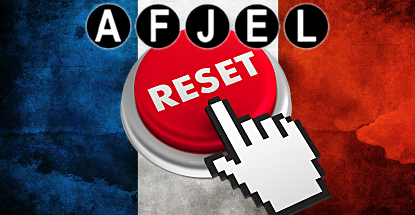 France needs to radically overhaul its online gambling market, according to a new study by the association representing the country’s online operators.
France needs to radically overhaul its online gambling market, according to a new study by the association representing the country’s online operators.
The Association Française de Jeu en Ligne (AFJEL) has released a study of the first five years of France’s regulated online gambling market. The study credits the market with mostly achieving its primary objectives of keeping a lid on problem gambling behavior, ensuring funding for sports federations and the integrity of sporting events.
So much for the good. AFJEL spared no venom in castigating the country’s much-maligned taxation levels, which hits operators with a corporation tax of 33%, plus 9.3% of sports betting turnover and 2% of online poker cash game stakes. AFJEL can only dream that French operators were in the same boat as their UK counterparts, who have the gall to grouse about having to pay the UK’s new 15% tax on online gross gaming revenue.
AFJEL also criticized France’s limited repertoire of approved sports wagers, the lack of online casino approval and the fact that former state monopoly Pari-Mutuel Urbain continues to control 85% of online horseracing wagers.
While some French-licensed operators were recently granted license extensions, AFJEL noted that only half of the original 62 licensees are still active in the French market, the rest having given up trying to squeeze blood from a stone.
AFJEL believes French authorities need to rethink tax rates and approve a wider variety of betting options across all verticals, and these changes need to be implemented “as quickly as possible.” It’s worth noting that AFJEL released a similar study calling for much the same recommendations way back in 2011, an appeal so far ignored by French authorities.
France recently made noise about reviving shelved plans to share its online poker liquidity with operators in other European Union regulated markets, with Italy and Spain traditionally cited as likely partners. Italy is in the process of amending its own online gambling regime to allow for sharing of not only poker liquidity but also for pari-mutuel betting pools. However, even if approved, these changes aren’t likely to be implemented until late 2016.
